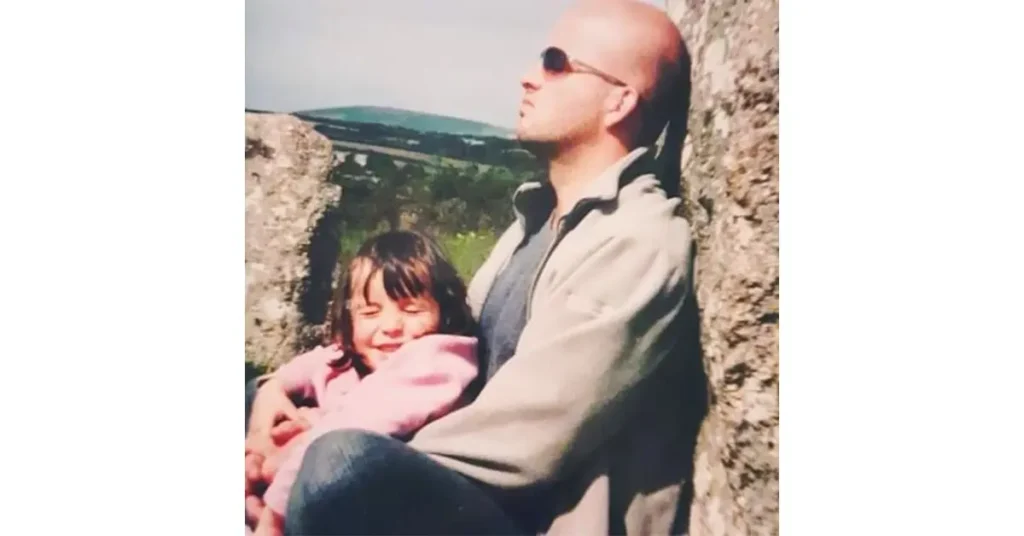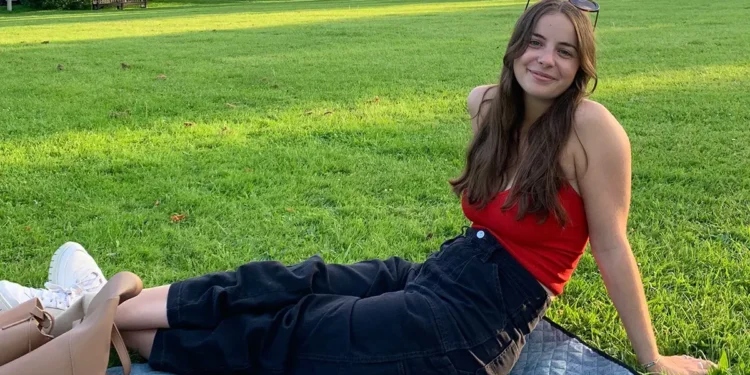It is no secret that none of us enjoy talking about death and bereavement. Sadly, however countless youngsters in Oxfordshire are having to cope with the death of a significant person in their lives and the after-effects of their bereavement. Local youngster and Ambassador for childhood bereavement charity Winston’s Wish, Maya Blackwell, is one such young person.
Maya explains her experience after her father died from suicide when she was five years old, saying, “My Mum reached out to Winston’s Wish quite soon after my Dad died, when I was 5. My Dad took his own life, and I think my Mum wanted some support in helping us process this. She was always open and honest with us, but getting help from Winston’s Wish which gave us support specifically for children who had lost a parent to suicide, was invaluable in helping us process the complex emotions surrounding a death like that.
“Grief is like the ocean in many ways. At times it can feel all-consuming, all-powerful, and totally inescapable. Threatening and ominous. At other times it simply ebbs and flows quietly – always there but just trickling at your toes, noiselessly reminding you of its presence. You can paddle a little in it, maybe even indulge in a swim – and it feels okay. It feels manageable. The more time you spend with it, the less you come to notice it, the less powerful it seems. But all it takes is a storm or a gust of wind, and it threatens to overwhelm again. With grief, like the ocean, no day is the same.”

This week marks Children’s Grief Awareness Week which follows the theme ‘The Shape of Your Support’. This theme serves to highlight the need grieving children and young people have for support outside of their immediate social circle. In a recent survey of bereaved young people hosted by Winston’s Wish, it was discovered that 55% of respondents have only spoken to a family member about their grief whereas nearly 10% of respondents say they have never spoken to anybody about their feelings.
Maya explains why access to support is so important. She says, “Grief can be lonely and while it’s easy to assume that children can simply speak to their families or friends, this isn’t always possible. Not all children have perfect home lives and feel safe to open up, but equally, as in my case, a fear of upsetting your family can prevent children opening up.
“While my Mum always encouraged emotion and created a safe space for my brother and I to feel our grief, as I became older, I worried about upsetting her or worrying her and kept things in. Support outside of the family unit can therefore be extremely helpful, as it isn’t always your family that you want to speak to.”
Winston’s Wish is the UK’s first childhood bereavement charity and has been established for more than thirty years. The charity works with children and young people throughout the UK to help them cope after they have suffered a bereavement. Winston’s Wish also offers free advice and support as well as specialised training to professionals in a variety of settings including healthcare and education, to help the adults around a grieving youngster to be best equipped to support them.
Estimates suggest that, devastatingly, each day, more than 100 children in the UK are bereaved of a parent and that figure doesn’t equate how many young people are coping with the death of a sibling, grandparent, friend, or another significant individual in their lives.
Maya explains how important it is for young people to know that bereavement support, especially designed for young people, is readily available. She says, “I think it’s often too easy for children to slip through the net and their emotions are not considered because of their age. While we might see the impact of losing someone on a child in the period immediately following the death, it’s important to be aware that grief in children is always changing and manifesting itself in different ways. Just because a child isn’t crying or openly showing emotion does not mean that they are okay or doing better.
“I think one of the key benefits of reaching out for support, especially from a charity like Winston’s Wish, is just knowing that you’re not alone. Again, although I had my brother, who understood exactly what I was going through, we didn’t know any other kids going through the same thing until getting involved with Winston’s Wish, and it was extremely comforting to be around others who knew exactly how it felt.”
It can be difficult to know how exactly to support a grieving young person. Maya shares, “Checking in is the most important thing. I think double checking when saying to someone ‘How are you?’ can be a good way of doing this. If you know someone has lost someone, and they’ve just gone through a life milestone, or even if they just don’t quite seem themselves, just checking in can be really helpful. Following up with ‘would you like to talk about it?’ gives them the option to open up but also shows that you do genuinely care.
“Sometimes I want to be understood as a bereaved person in certain situations, for example when conversations about parents come up. It’s not necessarily that the conversations would upset me, but I’d like to be understood as someone who is bereaved. On the other hand, I don’t want that to be what defines me. I don’t want that to be the label that I carry with me for life – while my Dad dying when I was the age I was shaped me in ways that I probably can’t even comprehend, I also don’t think I’m defined by it – and I don’t wish to be.”
Winston’s Wish is keen to reassure bereaved young people and their families that they are welcome to chat online, email or call for free to speak to a bereavement support worker by calling 08088 020 021, emailing [email protected] or using the live chat at winstonswish.org.







